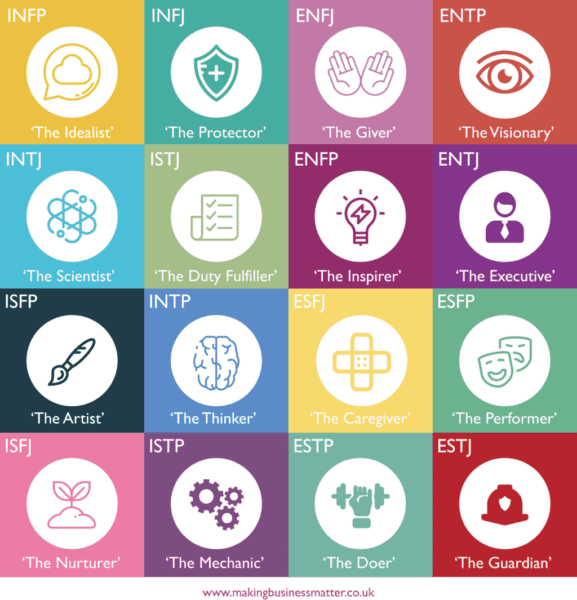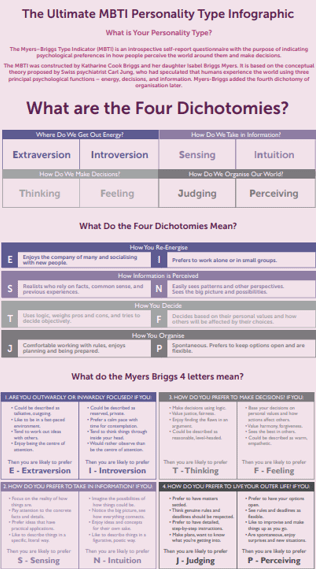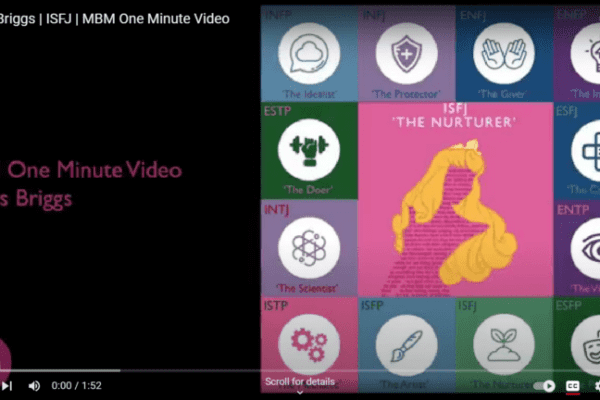‘The Nurturer’
Welcome to the world of ISFJs—a guide to understanding, connecting, and thriving in relationships. So whether you’re navigating work dynamics or discovering more about the ISFJ in your life, this guide is your go-to resource.
The best ideas are the honest ones. Ones born out of personal experience. Ones that originated to help a few, but ended up helping many.”
– Simon Sinek
Are ISFJs rare? Not really! Making up 8.1% to 19.4% of the population, these helpful guardians are anything but uncommon. But this guide isn’t just about stats; it’s a journey into what makes ISFJs unique.
So if you’re curious about ISFJ personalities or happen to be one, get ready for a revealing experience. Now the question is: how can you develop the strength of ISFJ and become a better version of yourself? But first, let’s quickly explore MBTI, a tool essential for decoding personality nuances.

MBTI | An Overview
Carl Gustav Jung or Isabel Briggs-Myers. Who’s the founder of MBTI?
While many claim that Katherine Briggs and her daughter Isabelle Myers are the creators of the now-famous MBTI, did you know Carl Gustav Jung came up with the idea first?
MBTI is based on Carl Jung’s work, “The Influential Theory of Psychological Types” dating back to 1921—his work talks about preferred types of behaviour with four main functions. And the first two functions define how we perform – how we take information and make decisions. The second two functions define our energy or form of expression – extraversion and introversion.
Controversially and contrary to popular belief, Jung repeatedly objected to Katherine and Isabelle’s work, claiming that his work had been misinterpreted. Regardless of this, the 16 personality types are visualised below. Can you spot ISFJ?

Development of MBTI
Strong with the belief that Jung’s theory on the knowledge of preferences will help women find work, Isabelle Myers with the help and guidance of her mother Katherine Briggs embarked on a journey that led to the birth of MBTI, also known as Myers Briggs Type Indicator.
Also, one of the key advancements the mother and daughter added to the MBTI dimension is the attitude to the outer world and so the birth of a 4th preference came to light.
The Rise and Fame of MBTI
In 1970 Isabelle Myers and Mary McCaulley worked together to bring light to MBTI and soon after in 1975, their efforts paid off as it became one of the most used and well-known personality type assessments in the world (even until now).
Sticky Learning ® is 7 times more effective than 1-day training courses. Plus, you will get a Chain of Evidence proving your Return on Investment. Discover soft skills training that changes behaviours long term.

The 5 Values of MBTI

- MBTI can be used for individuals or teams
- MBTI is a framework to improve self-awareness
- MBTI is a powerful tool to improve communication
- MBTI is a tool to develop leadership skills such as problem-solving, decision-making, change management, and teamwork
- MBTI is a method for identifying stressors and how to manage them
The 4 Dimensions of MBTI
Now let’s start our self-awareness journey with the 4 dimensions of MBTI. Here’s a quick checklist to gauge yourself and see where you stand. Now reflect on these 4 questions without overthinking (we will cover more in-depth a little later, this is just to get you started).
- First Dimension – how do you express your energy: are you an Extrovert (E) or an Introvert (I)?
- Second Dimension – how do you process information: are you a Sensor (S) or an Intuitive (N)?
- Third Dimension – how do you make decisions: are you a Thinker (T) or a Feeler (F)?
- Fourth Dimension – how do you like your lifestyle: are you a Judger (J) or a Perceiver (P)?

Now that you have reflected, you will notice that the different combination of those 4 dimensions results in 16 profiles which we know as MBTI. Those 16 profiles are divided into 4 different quadrants or families which we call: Rationales (INTJ, INTP, ENTJ, ENTP), Idealists (INFJ, INFP, ENFJ, ENFP), Guardians (ISTJ, ISFJ, ESTJ, ESFJ), and Artisans (ISFP, ISTP, ESFP, ESTP).
Note that while we are born with a certain set of tendencies, we also develop subsequent tendencies as we grow up due to our environment and the experiences we go through.
Example
So take for example someone born with a more dominant extroverted tendency; they can unconsciously develop their introverted tendency due to circumstances in life beyond their control (like an event that triggers shyness in them).
At times, individuals may consciously choose to develop a tendency, especially when it comes to work purposes. For example, someone inclined towards being a perceiver might actively seek to cultivate some of the judger’s tendencies to enhance productivity in the workplace.
However, it’s crucial to recognise that there is no black or white when it comes to personality traits. There is no stark division between extrovert or introvert, sensor or intuitive, thinker or feeler, judger, or perceiver. Instead, we all navigate a spectrum between each tendency. While some individuals may showcase more extreme tendencies, the majority of us fall somewhere along this nuanced spectrum.
When we learn a new tendency, we don’t change our nature. Actually, we just upgrade ourselves thanks to our environment and upbringing.
Now a word of caution, if you are living in a constant state of stress, anxiety, and worry, then you probably are acting from nurtured tendencies rather than your natural tendencies. In that case, reverting to your natural tendencies can lower your stress. And once you master both dynamics, you can of course dance between them.
Okay enough with MBTI, you want to know more about yourself, right? Just in case your curiosity is taking the best of you, you can check our ultimate MBTI guide (Myers Briggs). And also if you want to confirm you are ISFJ, you can go through this short MBTI test.
Meaning

Introverts are often misunderstood by extroverts who find them perhaps a bit too mysterious. But by getting to know ISFJs we get to see their reel, compassionate side. In fact, many ISFJs have a Mother Theresa vibe, helping others without expecting much in return, which is why many of them work in the healthcare industry.
They tend to be the busy bees that no one recognises (at least not at first) but their dedication, commitment, and reliability have no bounds.
ISFJs are compassionate doers. They have a deeply caring and sensitive introverted side mixed with their realistic and factual sensory side. ISFJs are also attracted to others and cooperate well with them (their feeling side), adding to it their planning and routine nature (as judgers) which makes them reliable. Oh, what a combination!
Are you a Taurus? Perhaps you enjoy being a VA (virtual assistant), customer happiness consulting, relationship coaching, or even an interior designer as a side hustle? Then you are most probably an ISFJ.
Since ISFJ women make out 19.4% of the population, here is an interesting question to ponder:
How Can You Tell If a Girl Is an ISFJ?
Often an ISFJ girl is mistaken for an extrovert because of the connections she forms with her social circle. She’s a perfectionist for sure and makes sure to tackle her responsibilities. Also, an ISFJ girl enjoys staying away from the spotlight and struggles to say no. And she goes above and beyond to take care of other people, especially her close circle (even if they don’t ask). An ISFJ girl is very nurturing.

Personality Type
Remember the 4 dimensions we briefly discussed earlier when describing MBTI? Well, here we are. I hope you were able to reflect. If not, this is your chance.
Let’s Start with the First Dimension
Is ISFJ an introvert? Netflix and popcorn anyone?
As an extraverted introvert ISFPs gain energy (and feel re-vitalised) by being with themselves – don’t misinterpret choosing to be alone as feeling lonely. Your preferred way of communication is through art which allows you to work out ideas by expressing them. You learn best by practising your art – whether singing, dancing, or a musical instrument.
Contrary to the extrovert (your opposite), quality always trumps quantity and as such, your focus tends to be in-depth when it comes to your interests. ISPs are also private and contained – they rarely share personal information and don’t pry on others. ISFP only takes initiative if the situation is important to them, preferring the solace of their own company.
Are you really an introvert? or maybe, just maybe, an ambivert? One of the top organizational psychologists Adam Grant conducted studies that showed that 2/3 of the population are ambiverts. To also make sure you know who you really are, here’s a 9-item checklist you can check.
Next, Let’s Welcome the Second Dimension
Here we answer the question: How do you process information?
ISFJs are very much in tune with their senses. They excel at focusing on the details and specifics, always noticing details, remembering facts, and emphasizing the importance of small steps and facts. Additionally, in their process of pattern creation, they have a remarkable ability to notice anything new or different right away—they are that good.
Moreover, ISFJs live in the here and now. They are not particularly interested in the future, preferring to take a close look at the present and what can be practically done at the moment. Also, they trust experience over theories and ideas, finding comfort in tangible, real-world encounters. Furthermore, ISFJs enjoy step-by-step instructions, as they provide a clear roadmap for action.
Also noteworthy is the fact that ISFJs use their five senses to take in information. This sensory approach allows them to gather details and also understand their surroundings in a thorough and grounded manner.

Let’s Move to the Third Dimension
Now, are you objective or subjective when making decisions?
Here people and values are at the centre stage for ISFJs. Now some might call them subjective in their decision making but they don’t care, or rather they care too much. They always take into consideration people when making decisions. All in all, they are people pleasers who work best when there is harmony at work. Being people-driven, ISFJs enjoy giving and receiving appreciation and finding common interests to share as well as common grounds to work on. Fair is their middle name and treating everyone equally is a must for them. ISFJs take into consideration the ideas and opinions of others before making a decision.
And Finally, the Fourth Dimension – Lifestyle
It’s time, and time is of the essence. Time is running out, and I find myself constantly reminded that I don’t have time to spare. The urgency to be productive looms large, prompting the question: Shall we go on?
Also, ISFJs are sticklers to rules, time, rituals, productivity, and patterns. Let’s face it; they are exceptionally predictable. Not only are they the first ones to show up at a meeting or on a date, but ISFJs also adhere to a very tight schedule they diligently follow. For them, planning and preparation take precedence, as surprises are not welcomed. Steady and consistent wins the race, and this is undeniably a J motto that ISFJs live by.
Moreover, the most beautiful gift a judger, like an ISFJ, can receive is a goal, a plan, and a deadline. And if you’re in search of creativity, they’re not the individuals you should be seeking out. Their strength lies in structure, organisation, and a systematic approach, making them reliable and effective in achieving set goals.
In a nutshell, ISFJs’ dominant cognitive function is introverted sensing which makes them grounded and focused on the details. Their auxiliary function is also an extraverted feeling which makes them emphasise connection and social harmony.
Introverted thinking is ISFJs’ tertiary cognitive function which means they look for patterns and are great planners and organisers. Now extraverted intuition is the last (but not least) cognitive function of ISFJs meaning that after they’ve looked at all the facts they can start looking at the possibilities.
What is ISFJs’ Weakness?

ISFJs tend to repress their emotions which can lead to many diseases in the long term. An ISFJ must learn to express their emotions and not be like the exploding volcano. Also, they need to not take things too personally. Another weakness of theirs is that they are too factual and disregard possibilities, but might they be reminded that it’s the dreamers of this world that give the world direction?
Besides with AI not only at the doors but constantly knocking now it’s important to be open for creativity as well. Note ISFJs are so much like the Taurus sign of the zodiac in that they don’t like change. While sometimes it can be great as it shows reliability and consistency, being open to change can help expand their already brilliant plan.
ISFJ-t (the 5th Dimension)
T for Turbulent. Turbulent protectors (ISFJ-t) are less assertive than Assertive protectors (ISFJ-a). They tend to worry and blame themselves more which leads to ISFJ-t being more perfectionists. Because of their worry, they are more often on alert but this also has its downside as it exhausts them. On the other hand, they are better listeners than ISFJ-a. They are more likely to ask the opinions of their friends and partners. ISFJ-ts are also more likely to express their emotions. At work, ISFJ-t is more cautious of the two and tends to work more. ISFJ-a is also bolder.
And now, let the wedding bells start ringing!
ISFJ Compatibility

So, who should ISFJ marry? Well, Guardians are most compatible with Artisans. As a Guardian – ISFJs have the best flings and passionate short-term relationships with ESTPs, while they have the best long-term lovey-dovey relationships with ISTPs.
As a rule of thumb, achieving a harmonious relationship often involves striking a balance between two shared traits and two complementary ones. The shared traits create a sense of familiarity and comfort, while the complementary ones introduce a healthy level of friction to keep the sparks alive.
In the quest for your ‘almost’ ideal match, the right combination hinges on various factors such as your upbringing, your current environment (and your potential desire to change it), and the life goals you aspire to achieve. In the end, selecting the optimal blend becomes a personalised journey, tailored to your unique circumstances and aspirations.
So taking the example above, the ESTP will bring extraversion, a more objective way of looking at things and a more adventurous life for you and your relationship. Now while this combination is intriguing in the short term it can exhaust you in the long haul.
An interesting research showcased how ISFJs are a complex personality type when it comes to dating and relationships. The study explored four different factors for compatibility: communication, passion, friendship, and partnership. This same study shows that whenever it ranked high in one, it ranked lower in another. So, what are you choosing? Or rather who are you choosing?
What Makes ISFJ Fall in Love?

Are you interested in an ISFJ? Do you want to know what makes ISFJ fall in love or how does an ISFJ flirt? One way is by using their love language.
Are you familiar with the 5 love languages of Dr Chapman? Do you know what is ISFJ’s love language? Simply put, it’s acts of service. ISFJs are champions when it comes to doing acts of service even when no one asks them. We always give what we want to receive. So if your partner is an ISFJ try doing an act of service for them.
ISFJs are rather subtle when they flirt. Foreplay was invented for ISFJ, as they need time to get comfortable with you. Like the astrological sign of Taurus, they can be sceptical at first. So one way to win their heart is to make them feel safe. But when they open up, they can be very playful and even humorous. They are the romantic sensual type who will enjoy candlelight dinners, hot baths, flowers, and the like. And yes they also love to give and receive gifts.
When you make your ISFJ partner feel safe and most importantly valued equally in the relationship, their heart will open up. Be patient, caring, and also consistent with your love, and they will start to fall in love.
When ISFJ are in love, they are loyal, committed, and also of course, loyal.
ISFJ and INFJ
How similar do you think ISFJ and INFJ are? Take a moment to reflect before delving deeper.

While ISFJ and INFJ have a similar approach towards people and they share a strong core (IFJ), one letter separates them, and this letter makes all the difference. And this one letter makes them think and process information differently, which means they see the world differently.
ISFJ with dominant introverted sensing (Si) is more factual, practical, and present-oriented, whereas INFJ with a dominant introverted intuition (Ni) is more idealistic and future-oriented.
This can be a good combination and also has a lot of potential for growth and happiness.
Let’s make you now the best version of yourself. The next section will arm you with learning tools for you to grow and become your most magnificent self.
Learning & Growing
But first, a little glimpse into how you became you.
Development
ISFJ just like any other personality type goes through three phases of transformation in their lifetime. Phases can be shorter or longer depending on your nature, the environment you are growing up and developing into, and your career.
The first phase is obviously childhood. As highly sensitive and compassionate children, ISFJs’ main development at this stage is their introverted sensing (Si). The outside world might seem like a shock for them (picture Clash of the Titans), pushing them to take refuge in their own company and develop their introverted and fact-driven activities.
The second phase happens between adolescence and early 30s. This is where ISFJ develops the second faculty – extraverted feeling (Fe) and is at odds between the emotional teenage years and the maturity – introverted thinking (Ti). They also might go to such lengths as sacrificing their desires and dreams to ensure that others are happy. Note the internal struggle can last a while.
The third and final phase of development for ISFJ is the integration phase. This is where all the pieces of the puzzle click together.

How E & I Can Help Complement Each Other
Extroverts can help introverts open their sphere of influence by:
- Moving into action
- Broadening their ideas
- Amplifying their energy focus
- Expanding their Interaction
- Widening their network
- Providing extensive information
Introverts can help extroverts centre themselves by:
- Reflecting more
- Scanning through ideas
- Deepen their calmness
- Strengthen their concentration
- Deepen their friendships
- Listening to others
How S & N Can Help Complement Each Other
Sensors can help intuitivists be more practical by:
- Adding more facts
- Providing more practical and realistic information
- Looking deeper at the details
- Applying their experience when solving problems
- Focusing on what needs attention now
- Focusing on the present
Intuitive can help Sensors recognise the inter-connectedness by:
- Looking at new ideas
- Creating change
- Being open to looking at trends
- Applying insight and pattern recognition to solving problems
- Focusing on long-term goals instead of short-term goals
- Focusing on future possibilities
How T & F Can Help Complement Each Other

Thinkers can help Feelers get clearer and more direct by:
- Analysing the implications and consequences
- Being consistent with rules
- Standing firm on important principles
- Being more objective when making decisions
- Having specific criteria that allow a clearer thinking process
Feelers can help Thinkers reconnect by:
- Predicting how others will react and feel
- Making individual exceptions when necessary
- Accepting human-centred values
- Allowing better cooperation and collaboration
- Creating a more harmonious environment
How J & P Can Help Complement Each Other
Judgers can help Perceivers be more productive by:
- Being more organised and decisive
- Sharing decisions and moving ahead
- Being in control
- Having closure
- Focusing on tasks and goals
- Providing clear expectations and timelines
Feelers can help Judgers be open to possibilities by:
- Being more flexible and adapting better
- Dealing with situations as they arise
- Embracing new experiences
- Being open to options
- Being open to new information
- Accepting change
Great points, right? Now, as an ISFJ, your opposite would be ENTP. I’d like to invite you to choose one point of each of your opposites (that makes 4 points) and develop them, making them part of you.
How to Communicate with Your ISFJ Manager, Colleague, or Romantic Partner

Do you want to get the most out of your ISFJ colleague/employee/boss or even your romantic partner? Well, it’s simple. Just act as they would, and they will love you for it. So much that you will see their productivity skyrocket, their affection for you increases, and more.
The 6 ISFJ Rules for the Extrovert (Rule 0: No Open Space)
- Practice active listening.
- Think before you speak, and f you must speak, let them know you are thinking out loud.
- Choose a time and place to communicate with minimum distraction.
- Pause and wait for a response, don’t jump in to fill the silence, especially with small talk.
- Don’t come across as imposing or demanding of an immediate response.
- Avoid making immediate decisions.
The 6 ISFJ Rules for Intuit (Rule 0: Dream a Little, You Are Allowed)
- Provide step-by-step, detailed information on specific tasks (share the facts before giving the big picture).
- Provide as many concrete facts and examples to prove your ideas (and I mean to be super generous).
- Share more facts and observations (tables, graphs, infographics, they are all welcome).
- Be organised in your presentation, and sequentially present your thoughts and findings (don’t just share links and ideas).
- Remember that others might not seek change – be open to sticking to a plan.
- Assess what is working well as well as what needs to be changed.
The ISFJ Rules for the Thinker (Rule 0: People Buy Emotions, Not Facts)
- Take the time to get to know ISFJs and develop a rapport with them.
- When you are listening, avoid critiquing.
- Remember to also be friendly and offer support and encouragement.
- While honest feedback is important, remember to also provide it gently and to critique the behaviour instead of the person – acknowledge don’t analyse feelings and values.
- While focusing on your tasks and objectives, remember that individuals are also involved in the situation – adding a personal touch would go a long way.
- Focus on creating a win-win situation, not everyone likes competition.
The 4 ISFJ Rules for the Perceiver (Rule 0: Be on Time and Follow the Rules)
- Do whatever it takes to stick to the agreed schedules and deadlines.
- Prepare the Judger about possible changes, they dislike surprises – that way they can include the possible change in their calendar.
- Take a decision based on the information you already have, it’s better to apologise rather than regret a missed opportunity – just do something, anything really.
- Use lists and action plans to inspire you to action on specific tasks.
What Stresses ISFJ

The 5 stressors linked to their introversion:
- Working with others
- Talking on the phone a lot
- Interacting with others often
- Having to act quickly without reflection
- Too many concurrent tasks and demands
The 4 stressors linked to their feeling:
- Setting criteria and standards
- Criticism and concentration on flaws
- Focusing on tasks only
- Asking questions that seem inappropriate
Up for a challenge? Now I would like to invite you to work on one of the points mentioned so that you are in control of your stressor rather than them controlling you. And remember that “Rome was not built in a day.” Take it one bite at a time. And every time do one additional small step.
Careers
Unlocking the power of ISFJ’s strengths opens up a myriad of career paths, each aligning with their unique blend of people skills and unwavering commitment. Here’s a breakdown of where ISFJs shine:
1. Healthcare and Social Services:
They flourish in roles like nursing, mental health, or social work by leveraging their keen understanding of others’ feelings.
2. Administrative and Financial Roles:
They thrive in meticulous and orderly environments, making them well-suited for careers in administration, accounting, banking, bookkeeping, or also as a paralegal.
3. Counseling and Teaching:
They excel as counsellors or teachers, drawing on their protective nature and genuine concern for the well-being of others.
As ‘the protector,’ ISFJs are known for being reliable, responsible, and thorough in their actions. However, the key to their success lies in maintaining an orderly and structured work environment.
For those in the SF core, embracing your strength means recognising the warmth and also realistic approach you bring to interpersonal interactions. Furthermore, harnessing your SF functions—grounded in facts, common sense, and practical applications—ensures effective problem-solving and decision-making. This pragmatic approach also allows you to navigate challenges with a clear understanding of the real-world implications.
Remember, for ISFJs, and those working alongside them, a structured work environment is the cornerstone of success. So, whether you’re considering a career or collaborating with an ISFJ, understanding their need for order and structure is the key to unlocking their full potential.
According to Personality Junkie, a social or conventional job would be advantageous for ISFJ as they are intuitively in tune with other people and like plans, hence, their excellence in fields such as clergy, trainers, caretakers, or even payroll and technical writing. Adding to it the variety in the job would be the exact environment ISFJ would thrive in.

Lifestyle
ISFJs, true to their nature, enjoy Taurus activities centred around beauty and art, preferably in solitude. Moreover, nature beckons, inviting them to partake in leisurely walks and serene picnics. In addition to these outdoor pursuits, spotting an ISFJ engaged in gardening, crafting, and even dabbling in painting is not uncommon. Furthermore, when it comes to downtime, who’s behind those cosy Netflix-watching sessions? Yes, it’s most probably the work of ISFJs. This inclination toward tranquil and aesthetically pleasing activities also reflects their preference for a calm and harmonious lifestyle.
Quotes
Quotes that resonate can inspire, so let’s dig in and see what lightens up ISFJs:
“You can’t undo the past… but you can certainly not repeat it.” Bruce Willis
“Memories of our lives, of our works, and our deeds will continue in others.” Rosa Parks
“You can always become better.” Tiger Woods
“Love begins at home, and it is not how much we do, but how much love we put in the action that we do.” – Mother Theresa
“I’d never given much thought to how I would die… But dying in the place of someone I love seems like a good way to go.” Bella Swan, Twilight Saga
And also one of my favorite quotes by one of my mentors Jim Rohn, is “You are the average of the five people you spend the most time with. Choose wisely.”
Famous People
-
Entertainment Industry:
1. Bruce Willis:
Known for his reliable and down-to-earth persona, Willis often takes on roles that reflect a sense of duty and protection, embodying the ISFJ’s guardian nature.
2. Anthony Hopkins:
Now Hopkins’ methodical approach to acting and his dedication to his craft align with the ISFJ’s meticulous and thorough characteristics.
3. Halle Berry:
Berry’s empathy and commitment to various roles showcase the ISFJ’s ability to connect with emotions, making her a versatile and relatable actress.
4. Naomi Watts:
Now Watts is known for her genuine and caring on-screen presence. This mirrors the nurturing qualities of an ISFJ, as her characters often convey a sense of compassion and warmth.
5. Kanye West:
Despite his public persona, West’s devotion to his family and strong personal values align with the ISFJ’s commitment to those they care about. His creendeavourseavors often reflect a sense of duty to his craft and personal convictions.
6. Jessica Simpson:
Simpson’s emphasis on family and her grounded approach resonates with the ISFJ’s focus on relationships and a sense of duty.
7. Katie Holmes:
Specifically, Holmes’ reserved yet warm presence and dedication to her roles showcase ISFJ traits of reliability and responsibility.
8. Gwyneth Paltrow:
Paltrow’s balance of grace and practicality reflects the ISFJ’s ability to navigate between the emotional and the pragmatic.
9. Kirsten Dunst:
Dunst’s portrayals often embody a sense of nurturing and protectiveness, in line with ISFJ characteristics.
-
Politics and Royalty
1. Prince Charles:
Prince Charles’ dedication to charitable work and his commitment to traditional values align with the ISFJ’s sense of duty.
2. Kate Middleton:
Middleton’s grace, focus on family, and involvement in charitable causes reflect ISFJ traits of warmth and responsibility.
3. George H. W. Bush:
The late President’s calm and diplomatic demeanour, along with his commitment to service, align with ISFJ characteristics.
4. General Robert E. Lee:
Lee’s sense of duty, responsibility, and commitment to his beliefs align with the ISFJ’s strong moral compass.
5. Mitt Romney:
Romney’s measured and principled approach to politics reflects ISFJ traits of reliability and integrity.
6. Jimmy Carter:
Carter’s humanitarian efforts and commitment to peace mirror the ISFJ’s focus on the welfare of
others.
-
Activism and Sports:
1. Mother Teresa:
Mother Teresa’s selfless dedication to helping others and her quiet strength align with the ISFJ’s nurturing and compassionate nature.
2. Rosa Parks:
Parks’ quiet but impactful activism and her stand for justice resonate with the ISFJ’s sense of duty and commitment to principles.
3. Tiger Woods:
Woods’ disciplined and focused approach to sports reflects the ISFJ’s commitment to personal excellence and hard work.
4. Marcus Aurelius:
As a philosopher and Roman Emperor, Marcus Aurelius’ Stoic principles and dedication to duty align with the ISFJ’s sense of responsibility and integrity.
So what personality type is the queen in your opinion? Also ISFJ.
Wow! Talking about being in good company.
ISFJ Characters

My Favorite ISFJ Characters:
1. Steve Rogers (Captain America):
Captain America embodies loyalty, duty, and also a strong sense of responsibility—a classic ISFJ superhero.
2. Number One (The Umbrella Academy):
As the leader of the superhero family, Number One (Luther) displays the ISFJ’s natural inclination for leadership and putting others first.
3. Betty Cooper (Riverdale):
Betty’s nurturing and caring demeanour, along with her commitment to friends and family, align perfectly with the ISFJ personality.
4. Cinderella (Cinderella):
The classic fairy tale character, Cinderella, showcases the ISFJ’s resilience, kindness, and unwavering belief in the goodness of others.
5. Marge Simpson (The Simpsons):
Marge, the heart of the Simpson family, represents the ISFJ’s role as a caring and stabilising force.
6. King T’Challa (Black Panther):
The noble and principled ruler of Wakanda, King T’Challa, embodies the ISFJ’s sense of duty and commitment to others.
7. Sam (Lord of the Rings):
Sam’s unwavering loyalty and dedication to Frodo showcase the ISFJ’s deep commitment to friendship and support.
8. Superman (Superman – I’m jealous):
The iconic superhero Superman represents the epitome of strength, responsibility, and compassion—an envy-inducing embodiment of ISFJ virtues.
Do you resonate with them? What about ISFJ anime characters? The personality database also has a comprehensive ISFJ famous and fictional characters list for you to look at.
Action Plan
Now that you know yourself better, let’s help you step into the world, your new world, with an action plan. So let’s make sure that you are the best version of yourself. We at Making Business Matter strongly support personal and professional growth. As a manager, colleague, or partner working in the grocery industry as a supplier, we want to help you by giving you an action plan specially created for ISFJ supply managers working in the UK. In our free guide, you will also learn about work-based activities, receive a roadmap for line managers to support their teams, and our 5-level evaluation to show the ROI of our training (they stick!).
Now stop everything you are doing and act now. Whether you are at work or home, ask the people you are surrounded by to do a small project with you for the next 10 minutes. And it can be anything, from designing a marketing campaign to also cleaning a room. The key here for them is to divide the teams into two groups: extroverts and introverts. Your goal is to observe.
Finally, the Conclusion

In total, you’ve learned about ISFJs—people who value inner sensitivity, seek security, and genuinely care for others. From discovering strengths and weaknesses to also understanding communication and relationships, you now have valuable insights.
So whether you’re an ISFJ looking to grow or another personality type wanting to incorporate ISFJ qualities, the key is to take a step forward. Use this understanding in your personal and work life. Now what’s your first move in this journey of self-discovery and also better connections?
Updated: December 2023 by Farah Yasser Salama




